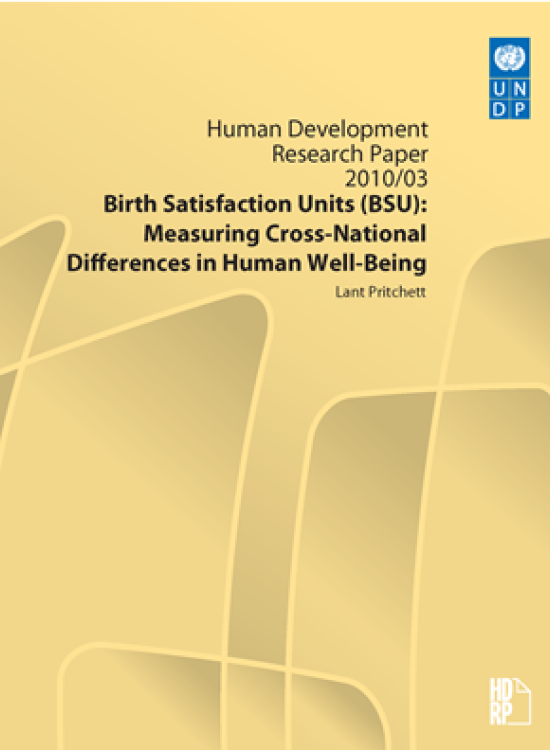Birth Satisfaction Units (BSU)
Measuring Cross-National Di erences in Human Well-Being

Download Report by Language
Document
hdrp201003.pdf
(595.71 KB)
Citation
Pritchett, Lant. 2010. Birth Satisfaction Units (BSU): Measuring Cross-National Di erences in Human Well-Being. New York.
Birth Satisfaction Units (BSU)
Measuring Cross-National Di erences in Human Well-Being
Posted on: January 01, 2010
While everyone agrees that GDP per capita is an inadequate measure of a country’s overall “development” it is difficult to specify what, if anything, should take its place as a useful single summary number (or even just ranking). The Human Development Index is a prominent alternative which moves towards the notion of a more comprehensive measure of human wellbeing, but suffers many limitations in the limits of the domains it covers (only adding mortality and education) and in how those domains are assessed (only averages). I propose that a useful conceptual device is to imagine that individuals were ranking the countries they were to be born into, not knowing what position in that country they would occupy (e.g. male or female, rich or poor). The result could be a cardinal ranking of country of birth satisfaction units, how strongly someone would prefer to be born into country X versus country Y. While this thought experiment obviously does not of itself resolve any of the key issues, it can provide a framework for reasoning about how people would produce such a ranking: the domains of well being they would assess as important and how they would assess the distribution of well-being in those domains (e.g. would they care about the average, levels of absolute deprivation, inequalities).